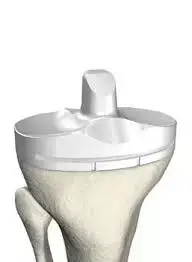- Home
- Medical news & Guidelines
- Anesthesiology
- Cardiology and CTVS
- Critical Care
- Dentistry
- Dermatology
- Diabetes and Endocrinology
- ENT
- Gastroenterology
- Medicine
- Nephrology
- Neurology
- Obstretics-Gynaecology
- Oncology
- Ophthalmology
- Orthopaedics
- Pediatrics-Neonatology
- Psychiatry
- Pulmonology
- Radiology
- Surgery
- Urology
- Laboratory Medicine
- Diet
- Nursing
- Paramedical
- Physiotherapy
- Health news
- Fact Check
- Bone Health Fact Check
- Brain Health Fact Check
- Cancer Related Fact Check
- Child Care Fact Check
- Dental and oral health fact check
- Diabetes and metabolic health fact check
- Diet and Nutrition Fact Check
- Eye and ENT Care Fact Check
- Fitness fact check
- Gut health fact check
- Heart health fact check
- Kidney health fact check
- Medical education fact check
- Men's health fact check
- Respiratory fact check
- Skin and hair care fact check
- Vaccine and Immunization fact check
- Women's health fact check
- AYUSH
- State News
- Andaman and Nicobar Islands
- Andhra Pradesh
- Arunachal Pradesh
- Assam
- Bihar
- Chandigarh
- Chattisgarh
- Dadra and Nagar Haveli
- Daman and Diu
- Delhi
- Goa
- Gujarat
- Haryana
- Himachal Pradesh
- Jammu & Kashmir
- Jharkhand
- Karnataka
- Kerala
- Ladakh
- Lakshadweep
- Madhya Pradesh
- Maharashtra
- Manipur
- Meghalaya
- Mizoram
- Nagaland
- Odisha
- Puducherry
- Punjab
- Rajasthan
- Sikkim
- Tamil Nadu
- Telangana
- Tripura
- Uttar Pradesh
- Uttrakhand
- West Bengal
- Medical Education
- Industry
Use of all-polyethylene tibial component improves outcomes in obese patients undergoing TKA

Obesity incidence is continuously increasing and is a major health concern. Several studies have reported negative results after total knee arthroplasty (TKA) in obese patients. Fernando Diaz Dilernia et al conducted a study to analyze the minimum 2-year outcomes in patients who have a body mass index (BMI) > 35 undergoing cemented TKA using an all-polyethylene tibial component (APTC) at a minimum of 2 years of follow-up.
The study was conducted at Division of Orthopedic Surgery, London Health Sciences Centre, Western University, University Hospital, London, Ontario, Canada. It has been published in “The Journal of Arthroplasty.”
The authors retrospectively studied 163 obese patients (192 TKAs) who underwent a primary cemented TKA using an APTC comparing the outcomes of 96 TKA patients who had a BMI > 35 to 39.9 (group A) with 96 patients who a TKA and a BMI >= 40 (group B). Median follow-up of groups A and B were 3.8 years and 3.5 years respectively (P = .02). Multiple regression analyses were performed to evaluate independent risk factors associated with complications. Kaplan-Meier survival curves were estimated, defining failure as the need for any further femoral or tibial revision surgery with implant removal, irrespective of the reason.
Key findings of the study were:
• There was no difference regarding mean surgical time and mean in-hospital stay between both groups.
• None of the patients in either group required blood transfusion.
• There was a significant improvement in the functional scores when comparing preoperative and postoperative values in both groups (P < .001).
• Survivorship, as defined by revision for any reason, was 99% for group A and 99% for group B (P = 1.00).
• There was 1 aseptic tibial failure in group A, and 1 septic failure in group B.
• Multiple regression analyses showed no significant associations between age (odds ratio [OR] = 1.00; P = .98; 95% confidence interval (CI) = 0.93 to 1.08), sex (OR = 1.38; P = .70; 95% CI = 0.26 to 7.25), BMI (OR = 1.00; P = .95; 95% CI = 0.87 to 1.16), and complication rate.
The authors concluded that - “At a median 3.7-year follow-up, the use of an APTC provided excellent outcomes and survivorship in patients who had Class 2 and Class 3 obesity.”
Level of Evidence: Level III, therapeutic study.
Further reading:
Minimum 2-Year Outcomes of All-Polyethylene Tibial Components in Patients Who Have Body Mass Index of 35 or Greater, Fernando Diaz Dilernia, Trevor Blanchard et al, The Journal of Arthroplasty 38 (2023) S157-S163, https://doi.org/10.1016/j.arth.2023.03.078
MBBS, Dip. Ortho, DNB ortho, MNAMS
Dr Supreeth D R (MBBS, Dip. Ortho, DNB ortho, MNAMS) is a practicing orthopedician with interest in medical research and publishing articles. He completed MBBS from mysore medical college, dip ortho from Trivandrum medical college and sec. DNB from Manipal Hospital, Bengaluru. He has expirence of 7years in the field of orthopedics. He has presented scientific papers & posters in various state, national and international conferences. His interest in writing articles lead the way to join medical dialogues. He can be contacted at editorial@medicaldialogues.in.
Dr Kamal Kant Kohli-MBBS, DTCD- a chest specialist with more than 30 years of practice and a flair for writing clinical articles, Dr Kamal Kant Kohli joined Medical Dialogues as a Chief Editor of Medical News. Besides writing articles, as an editor, he proofreads and verifies all the medical content published on Medical Dialogues including those coming from journals, studies,medical conferences,guidelines etc. Email: drkohli@medicaldialogues.in. Contact no. 011-43720751


